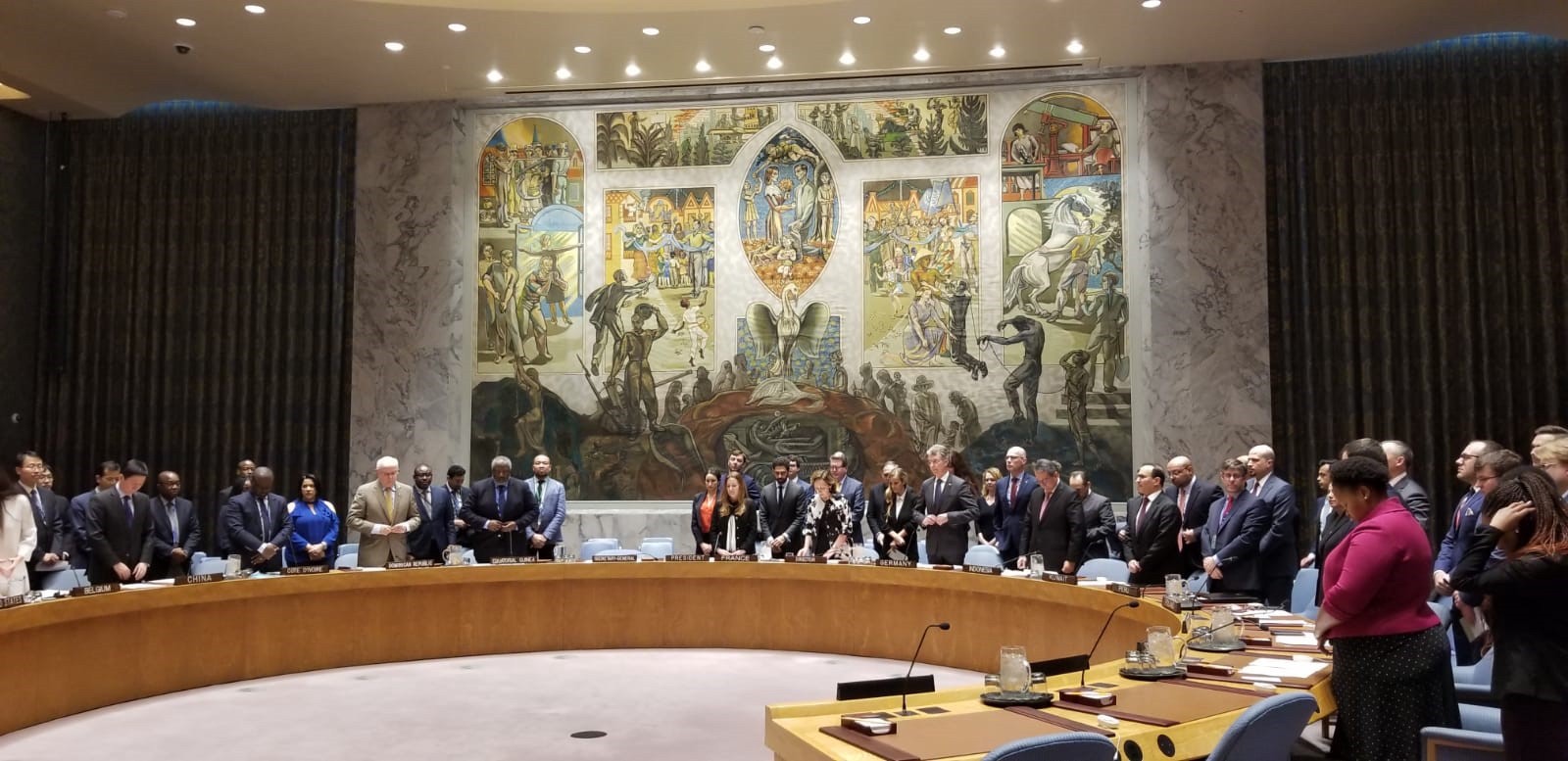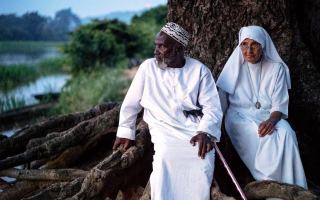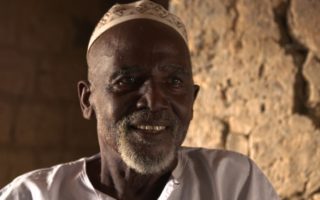
A moment of silence is observed by the United Nations Security Council following the tragedy in Christchurch. © UNHCR/Rick Towle
Rick Towle, UNHCR’s Deputy Director in New York, reflects on the two tragedies that have struck Christchurch, including its refugee families, in the past decade.
On Friday, March 15th, Rick Towle, Deputy Director of UNHCR’s New York Office, stood alongside fellow New Zealanders in the Security Council as a moment of silence was observed by the United Nations’ most powerful body. The members of the Security Council mourned the 50 lives lost in the terrorist attack at two mosques in Christchurch earlier that day.
In that solemn moment, Towle was transported to March 2011 when he last visited Christchurch after another tragedy. “I remembered the trauma but also the remarkable courage and resilience shown by the residents of Christchurch during those dark days. There was a tremendous sense of solidarity by all New Zealanders,” he said.
“There was a tremendous sense of solidarity by all New Zealanders.”
For the second time in less than a decade, all of New Zealand is demonstrating incredible unity and compassion in response to the profound sense of loss and horror that has struck Christchurch. The poignancy is not lost on Towle.
On February 22, 2011, Towle was in his office in Canberra, Australia where he was the Regional Representative for Australia, New Zealand and the Pacific when he learned a devastating 6.3 magnitude earthquake had just ravaged Christchurch. The earthquake left many of the city’s buildings in ruins, 185 people dead and thousands of other injured, trapped under rubble or missing. Among those affected were refugees who had come to New Zealand under the country’s generous resettlement program.
Resettled refugees, like all the Christchurch community, worked shoulder to shoulder to clear up the rubble, shovel mud of the city, and to rebuild its physical and spiritual heart. These refugees — who now called New Zealand their home — came from many war-torn countries including Afghanistan, Somalia and Sudan. All were part of the Christchurch community who, together, were united in their efforts to get the city get back on her feet.
“Prime Minister, Jacinda Ardern, spoke for the country when she said that ‘They are us.’”
Eight years later, Rick is shocked by the abhorrent attack on the two Christchurch mosques. In voicing a sadness shared by all New Zealanders, Rick sees the painful irony for Muslims, among them refugees. “It is profoundly painful to see that refugees having escaped the horrors of violence and conflict in their own countries and having found safety in New Zealand, were attacked in their sacred places of worship.”
Following the 2011 earthquakes, Christchurch had only restarted its resettlement program last year. Among the victims was a newly arrived Syrian refugee family who had been resettled only months ago. Again, New Zealanders have risen in solidarity for the victims of last Friday’s atrocities. Prime Minister, Jacinda Ardern, spoke for the country when she said that “They are us.” The outpouring of support has been remarkable. Across the country, numerous powerful performances of the haka, a traditional Maori dance, were performed by students, athletes, families and even a biker gang to show strength and unity across all communities.
Towle reflected with pride, tinged by sadness, “New Zealand, led by our Prime Minister, has shown why compassionate, clear-eyed leadership is needed if we are to preserve the tolerance, inclusivity and diversity on which our communities are built.”
This story was originally published on medium.org



